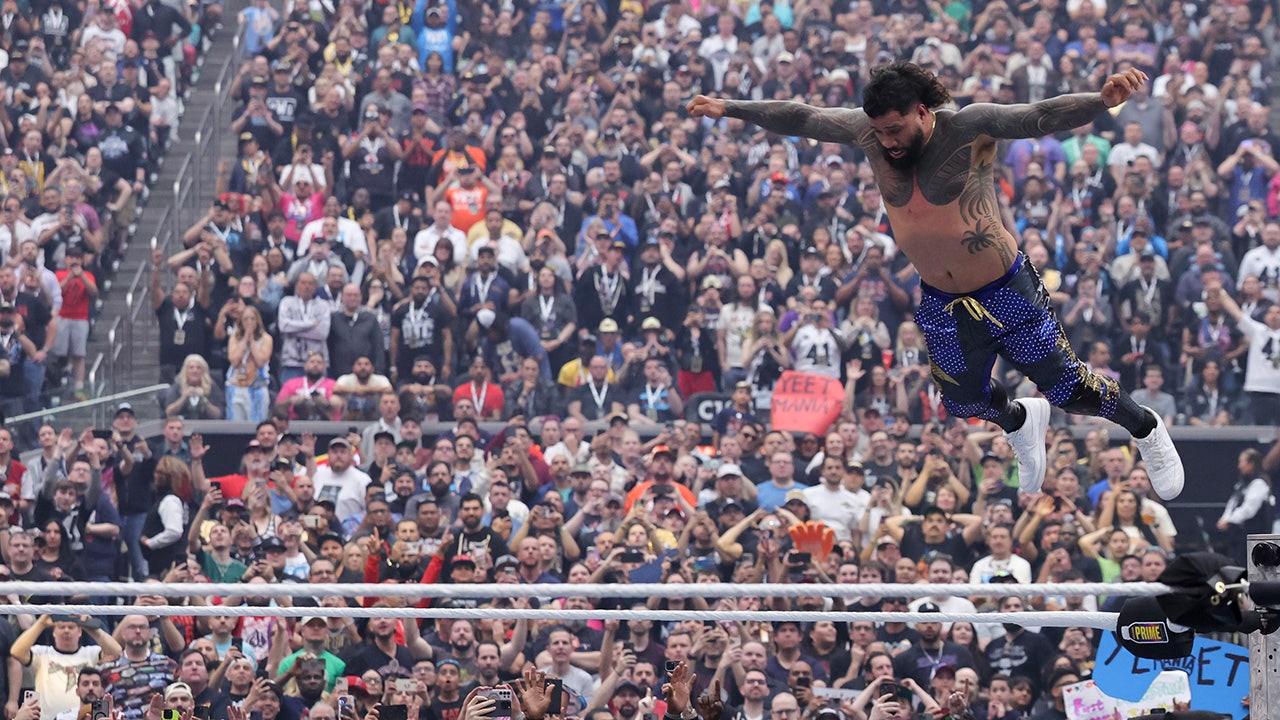Winter Olympic history runs through Utah mountains and Lake Placid ice, and also through an Ivy League campus in Hanover, New Hampshire.
Dartmouth is the lone college or university to have at least one current or former student on every U.S. Winter Olympic team dating to the first Winter Games in 1924 in Chamonix, France.
Dartmouth has produced gold medalists in hockey. Plus scholars who became Olympians in speed skating, bobsled and luge, which aren’t NCAA sports.
And most notably, Olympians across every skiing discipline at the Winter Games (Alpine, cross-country, freestyle, ski jumping, Nordic combined, even biathlon), though many were Dartmouth students but not NCAA student-athletes.
The pipeline is partially the product of the school’s quarter system for academics. That calendar allows flexibility to take off the winter term to compete internationally, yet still stay on schedule with summer classes.
That Ivy League programs don’t offer athletic scholarships can actually be a plus for promising skiers who may want to prioritize racing in Europe over being tied to the college season. Eleven schools have Division I ski programs, though all three divisions compete together at the NCAA Championships.
“If someone came to Dartmouth and had a chance to really excel by going to the Olympics or going to a higher level, not only did the college support that, but the ski team supported that,” said Peter Dodge, the Dartmouth men’s Alpine coach from 1989-2022. “We would often maybe shoot ourselves in the foot a little bit to maybe win an NCAA title by allowing someone to not compete for us for a year to ski in the Olympics.”
Take cross-country skier Julia Kern. She was named to the U.S. Ski Team a month before graduating from her Massachusetts high school in 2015, which complicated her academic plans.
She stayed on the national team while also matriculating at Dartmouth. She reasoned it was her best option to simultaneously pursue academics and athletics to the highest degree.
“I forged my own path, taking a partial gap year until the spring semester and then enrolling at Dartmouth as a full-time student, but with a flipped schedule,” she said in 2022. “I attended spring, summer, and fall terms, leaving the winter term open to follow ski race opportunities around the world. I spent my terms at Dartmouth feeling engaged and challenged in my courses, while training full time at school with the Dartmouth Ski Team and with the U.S. Ski Team in the winter and at training camps between quarters.”
Kern graduated in 2021 without ever competing for the school. Kern made her Olympic debut in 2022 and won a World Championships medal in 2023 and again last month.

NORTH ELBA, NEW YORK - MARCH 09: Dartmouth head coach Cami Thompson Graves encourages Nina Seemann of the Dartmouth Big Green during the women’s 5km freestyle during the Skiing Championships held at Mt Van Hoevenberg on March 09, 2023 in North Elba, New York. (Photo by Dustin Satloff/NCAA Photos via Getty Images)
Cami Thompson has been Dartmouth’s women’s Nordic skiing head coach since 1989. (NCAA Photos via Getty Images)
At Dartmouth, students can “walk out the door and get on a trail” to ski or roller ski, said Cami Thompson, who just finished her 36th season leading the Dartmouth women’s Nordic ski program. The Oak Hill Outdoor Center, where her team trains, is less than two miles from campus.
“People know that this is a place you can go and get an education and ski at a very high level,” Thompson said. “So I think that’s the attraction.”
The school pioneered skiing in the U.S. The Dartmouth Outing Club was created in 1909 to “stimulate interest in out-of-door winter sports.” Dartmouth hosted the first Alpine skiing races in the U.S. in the mid-1920s in the nearby White Mountains.
The first Dartmouth student to become a Winter Olympian was John Carleton, who competed in cross-country skiing and Nordic combined at the 1924 Winter Games. Carleton captained the Dartmouth ski team, but by the mid-1920s was skiing at Oxford on a Rhodes Scholarship, making the trip to Chamonix easier.
As the decades went on, Dartmouth Olympians included Alpine skier Dick Durrance, who later trained World War II ski troops of the 10th Mountain Division, according to Olympic historians known as the OlyMADMen; hockey player Jack Riley, who later coached both the 1960 Olympic champion team and at Army from 1950-86 and, after Dartmouth became coed in 1972, Sarah Tueting, the starting goalie for the first U.S. Olympic women’s hockey team that took gold in 1998. Tueting also played cello with the Dartmouth symphony orchestra.
Plus Winter Olympians from Canada, Great Britain, Switzerland, Estonia, Japan, Australia, the Philippines, New Zealand and Bermuda.
Sarah Billmeier, whose 13 Paralympic medals are joint-second-most in U.S. Winter Paralympic history, also attended Dartmouth as an undergrad, then returned years later to Dartmouth Hitchcock Medical Center as a surgeon.
Dartmouth counted 15 Winter Olympic team members in 2018 (13 for the U.S.) and another eight in 2022 (seven for the U.S.).
The streak will very likely continue through the 2026 Milan Cortina Games. About 10 strong U.S. Olympic team hopefuls across Alpine and cross-country skiing and biathlon have, at one time or another, trekked across the historic Green at the heart of the Hanover campus.
Thompson’s coach’s office inside Robinson Hall overlooks it. Inside, she has photos on her walls of her skiers over the decades, plus Olympic team-signed posters from 1988, 1992 and 1994, the years her sister cross-country skied at the Games.
Thompson also raced for the national team, but stopped in the fall of 1987, burned out from overtraining.
Though several Thompson pupils raced at the Olympics, the coach has never attended the Games, which overlap with the NCAA schedule.
“I don’t want to leave and miss the short season we have,” she said. “We spend more than half the year training for a relatively short season, and I don’t want to miss it.”
.png)
 German (DE)
German (DE)  English (US)
English (US)  Spanish (ES)
Spanish (ES)  French (FR)
French (FR)  Hindi (IN)
Hindi (IN)  Italian (IT)
Italian (IT)  Russian (RU)
Russian (RU) 


:max_bytes(150000):strip_icc():focal(967x513:969x515)/Alijah-Arenas-of-Chatsworth-Chancellors-042525-f939cc23ae6d4099bd1edb30782dea36.jpg)





Comments